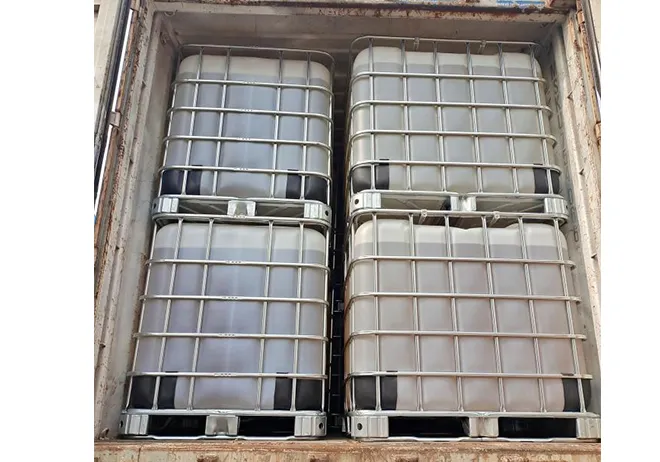
Exploring the Properties and Applications of PGMS Emulsifiers in Modern Formulations
Understanding PGMS Emulsifiers A Comprehensive Overview
Emulsifiers are integral components in various industries, especially in food, cosmetics, and pharmaceuticals. They serve the critical purpose of stabilizing mixtures that typically do not blend seamlessly, such as oil and water. Among the myriad of emulsifiers available, PGMS (Propylene Glycol Monostearate) stands out due to its versatility and efficacy. This article delves into the significance, applications, and properties of PGMS emulsifiers.
What is PGMS?
PGMS is an ester derived from glycerol and stearic acid, falling under the category of non-ionic emulsifiers. Its molecular structure consists of a hydrophilic (water-attracting) and a hydrophobic (water-repelling) segment, enabling it to reduce surface tension between water and oil phases. This attribute is essential for creating stable emulsions, which are critical in numerous formulations.
Properties of PGMS
One of the essential properties of PGMS is its ability to form stable emulsions even under varying conditions. It is resistant to high temperatures and has a relatively low hygroscopicity, meaning it does not absorb moisture from the air easily. This stability makes PGMS suitable for use in products that require prolonged shelf life.
Additionally, PGMS is recognized for its safety and is generally regarded as safe (GRAS) by regulatory bodies when used in food applications. It is also bio-degradable, aligning with the increasing demand for environmentally friendly ingredients. These factors make PGMS a preferred choice for manufacturers looking to achieve stable formulations without compromising safety.
pgms emulsifier

Applications of PGMS Emulsifiers
1. Food Industry PGMS is widely used as a food additive in various products, including baked goods, confectioneries, and margarine. It serves as a stabilizer, emulsifier, and texturizer. By enhancing moisture retention and improving texture, PGMS contributes to the overall quality of food products.
2. Cosmetics and Personal Care In the cosmetics industry, PGMS is utilized in creams, lotions, and gels, where its emulsifying properties help in achieving a smooth and homogenous texture. It enhances the spreadability and consistency of products, making it a popular choice among cosmetic formulators.
3. Pharmaceuticals The pharmaceutical sector benefits from PGMS as it aids in the formulation of ointments and topical applications. Its emulsifying capabilities ensure that active ingredients are uniformly dispersed, maximizing their effectiveness and absorption.
4. Industrial Applications Beyond food and personal care, PGMS is used in various industrial applications, including lubricants and coatings. Its ability to stabilize emulsions plays a vital role in enhancing product performance in these significantly diverse areas.
Conclusion
PGMS emulsifiers have established themselves as essential ingredients across multiple sectors due to their effectiveness, safety, and versatility. From stabilizing food products to enhancing cosmetic formulations and pharmaceutical developments, PGMS plays a crucial role in delivering high-quality products that meet consumer demands. As industries continue to evolve, the role of PGMS and similar emulsifiers will remain pivotal in the quest for innovation and excellence in product formulation. With ongoing research and developments, the potential applications of PGMS are bound to expand, reaffirming its importance in modern formulations.
-
Understanding Synthetic Rubber OptionsNewsApr.27,2025
-
Trichloroisocyanuric Acid: Essential for Clean and Safe WaterNewsApr.27,2025
-
Sodium Dichloroisocyanurate: Key to Safe Water TreatmentNewsApr.27,2025
-
Sodium Acid Pyrophosphate: Essential in Modern Food ProcessingNewsApr.27,2025
-
Essential Water Treatment ChemicalsNewsApr.27,2025
-
Denatured Alcohol and Its Industrial UsesNewsApr.27,2025
-
The Versatile Uses of Sodium BicarbonateNewsApr.24,2025
Hebei Tenger Chemical Technology Co., Ltd. focuses on the chemical industry and is committed to the export service of chemical raw materials.
-

view more DiethanolisopropanolamineIn the ever-growing field of chemical solutions, diethanolisopropanolamine (DEIPA) stands out as a versatile and important compound. Due to its unique chemical structure and properties, DEIPA is of interest to various industries including construction, personal care, and agriculture. -

view more TriisopropanolamineTriisopropanolamine (TIPA) alkanol amine substance, is a kind of alcohol amine compound with amino and alcohol hydroxyl, and because of its molecules contains both amino and hydroxyl. -

view more Tetramethyl Thiuram DisulfideTetramethyl thiuram disulfide, also known as TMTD, is a white to light-yellow powder with a distinct sulfur-like odor. It is soluble in organic solvents such as benzene, acetone, and ethyl acetate, making it highly versatile for use in different formulations. TMTD is known for its excellent vulcanization acceleration properties, which makes it a key ingredient in the production of rubber products. Additionally, it acts as an effective fungicide and bactericide, making it valuable in agricultural applications. Its high purity and stability ensure consistent performance, making it a preferred choice for manufacturers across various industries.











